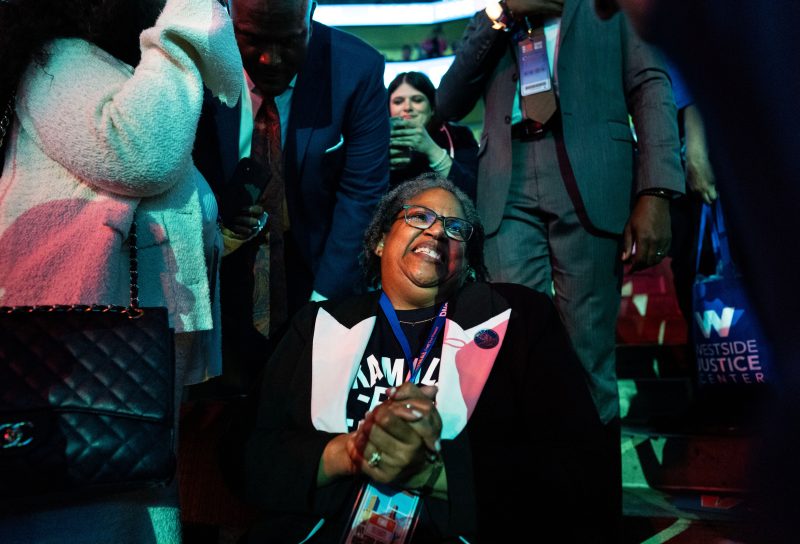In Kamala Harris, Black Women Leaders See Historic Strides and Work Ahead
The recent election of Kamala Harris as the first female, first Black, and first South Asian Vice President of the United States has been hailed as a historic milestone and a significant achievement for Black women in leadership roles. Harris’ ascent to the vice presidency represents a groundbreaking moment not only for her personally but also for Black women across the country who have long been underrepresented in positions of power and influence.
Several prominent Black women leaders have expressed their admiration and support for Vice President Harris, citing her victory as a source of inspiration and a symbol of progress for diversity and inclusion in politics. Melody Barnes, a co-convener of the Black Women for Biden-Harris coalition, praised Harris as a trailblazer who has shattered glass ceilings and paved the way for future generations of Black women to pursue their aspirations in public service.
For many Black women leaders, Harris’ election resonates on a deeply personal level, as it represents the culmination of years of struggle, perseverance, and resilience in the face of systemic barriers and discrimination. Harris’ background as the daughter of immigrants, her experience as a prosecutor and senator, and her commitment to social justice have endeared her to a wide range of supporters who see her as a champion of progressive values and transformative change.
Despite the historic significance of Harris’ victory, Black women leaders are quick to point out that there is still much work to be done in the fight for racial and gender equality. While Harris’ election is a testament to the progress that has been made in advancing diversity and representation in politics, it also serves as a reminder of the ongoing challenges and obstacles that Black women continue to face in their pursuit of leadership roles and opportunities for advancement.
Black women leaders emphasize the importance of not only celebrating Harris’ achievement but also holding her accountable to the values and principles that she represents. As Vice President, Harris has the opportunity to champion issues that are critical to the advancement of Black women and other marginalized communities, such as criminal justice reform, economic empowerment, and healthcare access.
In the words of Glynda C. Carr, president and CEO of Higher Heights for America, Vice President Harris’ election is a powerful symbol of progress but also a call to action for Black women to continue their advocacy and activism in the pursuit of social justice and equality. As Harris herself has stated, While I may be the first woman in this office, I will not be the last. This sentiment reflects a commitment to building a more inclusive and equitable society where Black women can thrive and lead with courage and resilience.
In conclusion, the election of Kamala Harris as Vice President of the United States represents a historic milestone for Black women leaders and a significant step forward in the ongoing struggle for diversity, representation, and equality in politics. While Harris’ victory is cause for celebration and reflection, it also serves as a reminder of the work that remains to be done in addressing systemic inequities and empowering Black women to achieve their full potential. As Vice President Harris embarks on her tenure in office, she carries with her the hopes and aspirations of countless Black women who see her as a beacon of progress and a symbol of possibility for the future.
